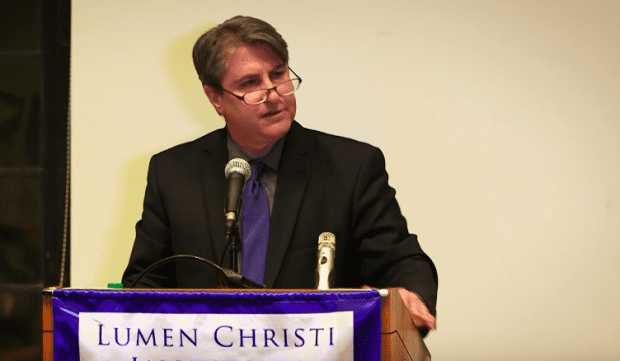The Loneliness Of Liberalism

The Washington Post‘s Christine Emba offers a take on Patrick Deneen’s Why Liberalism Failed that I haven’t seen anywhere else. She says Deneen shows that “liberalism is loneliness”. (Of course by “liberalism,” Deneen means the system that has governed Europe (more or less) and North America for the past 200 years.) Excerpts:
As liberalism has progressed, it has done so by ever more efficiently liberating each individual from “particular places, relationships, memberships, and even identities — unless they have been chosen, are worn lightly, and can be revised or abandoned at will.” In the process, it has scoured anything that could hold stable meaning and connection from our modern landscape — culture has been disintegrated, family bonds devalued, connections to the past cut off, an understanding of the common good all but disappeared.
And in the end, we’ve all been left terribly alone.
That’s the heart of it, really. Liberalism is loneliness. The state isn’t our sibling; the market won’t be our mate. And the more either the right or left’s solutions attempt to fill in the gaps — “more markets, for you to attempt to buy back what has been destroyed! More regulations, to protect you when you can’t!” — the more obvious it becomes that the entire concept is flawed. The institution of liberalism is caving in on itself, and we each individually feel the crush.
She points out that Deneen says “there’s no going back” to a pre-liberal state. More:
Even so, his major recommendation is to stop trying to shore up the broken system and begin to build anew. He offers a vision of smaller and more personal communities, reanimating ideals of interconnectedness and civic duty and recognizing that no one can live alone. It’s a common recommendation these days (see Rod Dreher’s best-selling “The Benedict Option” for a reactionary take, and the burgeoning interest in “co-living” spaces for a more progressive angle), and not an infeasible one. After all, people have been opting out of the system, together, basically since it began.
Yet the deepest solution to the problem of liberalism is as personal in scale as its deepest quandary. To overhaul liberalism, we will have to overhaul ourselves, exchanging an easy drift toward selfish autonomy for a cultivated embrace of self-discipline and communal responsibility. As daunting a project as reforming a political order might seem, this internal shift may be just as hard.
I appreciate Emba’s mentioning the Ben Op in her column. Even if I didn’t believe that Christian belief and practice were facing serious threats, I would still say that the Ben Op is needed to build stronger faith communities to combat this loneliness. I read Emba’s piece with reader JonF on my mind. You might have seen my post earlier, reporting that Jon was fired this week after arguing about a work matter with a relatively new employee, a Millennial woman who told their supervisors that Jon made her feel unsafe. While I am relying on Jon’s description of what happened, and obviously can’t get her side of the story, I find it very hard to believe that the kind, gentle man I know is guilty of treating anyone that way. Jon interprets his summary dismissal as an example of the kind of injustices we will see in the workplace under the emerging order.
I agree, and wrote about this in The Benedict Option. In the book I focused on Christians losing their jobs because they can’t affirm LGBT dogma without violating their consciences — that is absolutely not what happened to JonF — it is also the case that we are likely to see people losing their jobs for spurious reasons, e.g., having crossed a co-worker who is able and willing to play the victim card to get them fired. So many of these young people will have come through colleges that encouraged them to find and validate their identity in a victim status, because victimization is the route to power. Members of our churches and our communities will be suffering from this in the years to come, I believe, and we’ve got to develop thicker communities within which we can support them materially and otherwise until they can find new work.
I appreciate so very much you readers who have offered publicly and privately, in emails to me, to help Jon through this crisis. As you know, Jon is quite liberal in his beliefs, but that didn’t protect him from this vindictive young female employee who knew how to play the system. In all kinds of ways, it’s going to be up to the churches to pick up the messes late liberalism and its pomps and works makes in the lives of real people.
UPDATE: Yes, I know: this is what the church is supposed to be doing anyway. As Leah Libresco Sargeant says in the book, all the Ben Op calls for is for the church to be the church. Having been formed by the atomization of late liberalism, a lot of us don’t do it so well in the 21st century.
Subscribe for as little as $5/mo to start commenting on Rod’s blog.